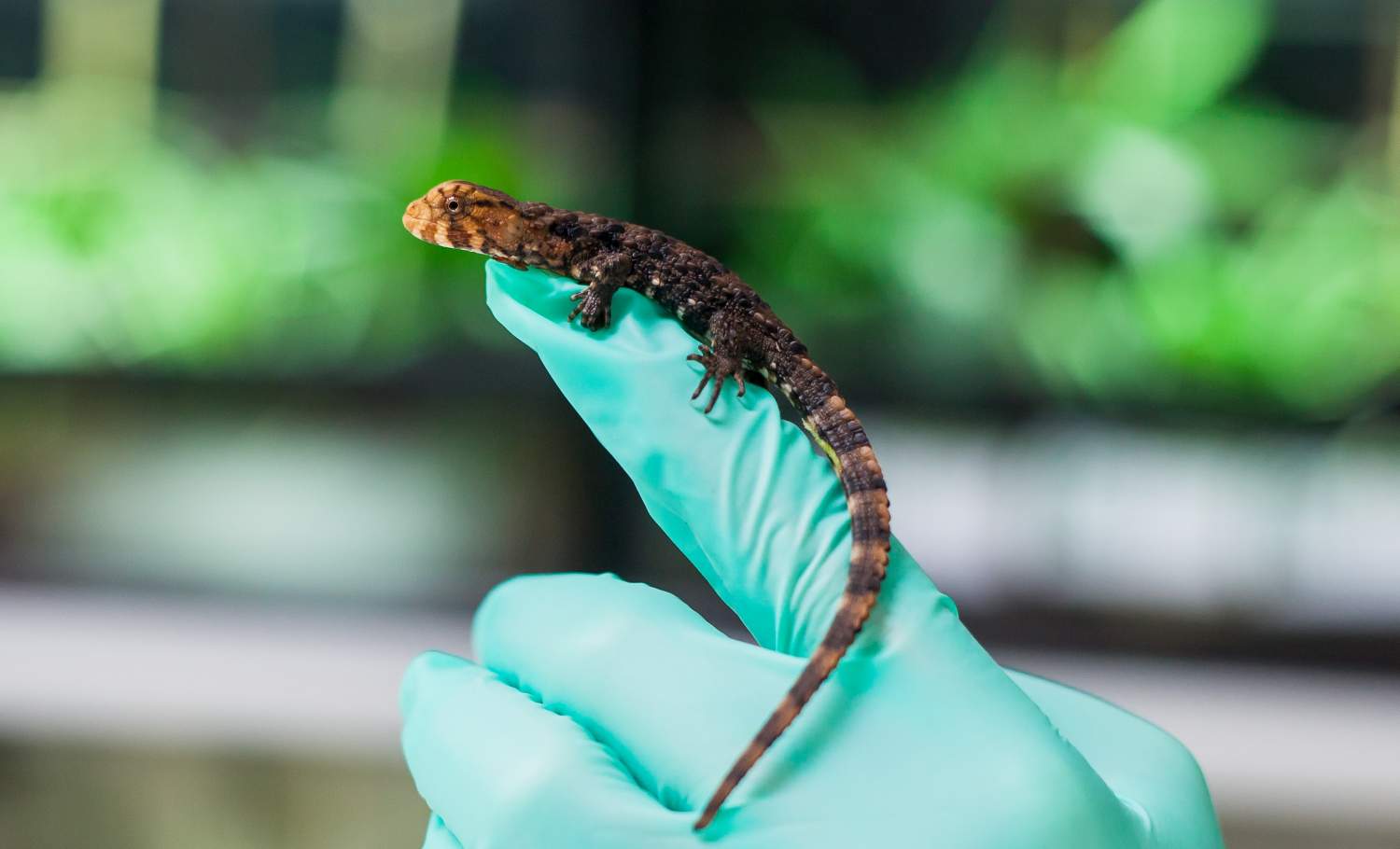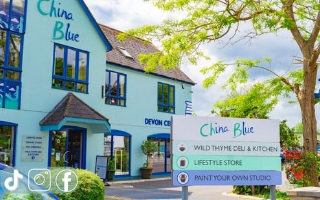It looks like a cross between a chameleon and a mosaic. Paignton Zoo Environmental Park in Devon has bred a Chinese crocodile lizard for the first time – by recreating a little piece of rural South China in suburban South Devon.
Probably most of us have never heard of a Chinese crocodile lizard. It’s not surprising; this small, semiaquatic lizard is found only in the provinces of southern China and northern Vietnam. It’s listed as Endangered on the IUCN Red List due to severe population declines and habitat threats.
No other zoo in the British and Irish Association of Zoos and Aquariums (the professional zoo body representing top zoos and aquariums in the UK) has ever bred this species before. Luke Harding, Paignton Zoo’s Curator of Lower Vertebrates and Invertebrates, is understandably excited:“This is a species that many other collections in the UK keep and work with. For us to successfully cycle and breed them is testimony to the progress of our department, the quality of our facilities and the expertise in our team!”
What, then, was the key to Paignton Zoo’s saurian success? Simply this – a full understanding of the species, the cycle of the seasons and the environment in which it lives, from weather to water. Luke: “Individuals went through a cool period when we kept them below 20 degrees and were then paired up for breeding at temperatures of on average 25 degrees.
“They bred in a semi-aquatic set up with a planted land area and branches and cork bark above the water for basking. An automated misting system was installed after the cool period to spray the animals regularly throughout the day and increase humidity.
“We weigh them at least every three months to monitor their health and ensure they are a good weight before attempting to pair them. They eat mainly worms but also insects such as crickets. We feed them three times per week and often do it by hand using tongs so we can observe them eating.”
The Chinese crocodile lizard (Shinisaurus crocodilurus) has bony scales down its back and a muscular tail that resembles that of a crocodile. A 2008 study estimated fewer than one thousand crocodile lizards were left in China. The same year it was estimated that fewer than 150 adults were left in Vietnam. Habitat loss is a major threat to the species. It has been listed on CITES Appendix II since 1990; it’s believed that illegal collection is rife.
The Chinese crocodile lizard spends much of its time in shallow water or in overhanging branches and vegetation, from where it hunts for insects, snails, tadpoles, and worms.
Paignton Zoo Environmental park is a registered charity. For more information go to www.paigntonzoo.org.uk or ring 01803 697500.

You can join us on our social media pages, follow us on Facebook or Twitter and keep up to date with whats going on in South Devon.
Got a news story, blog or press release that you’d like to share or want to advertise with us? Contact us


























